Why Arent Women Standup Vomedians Funny
Why Women Aren't as Funny
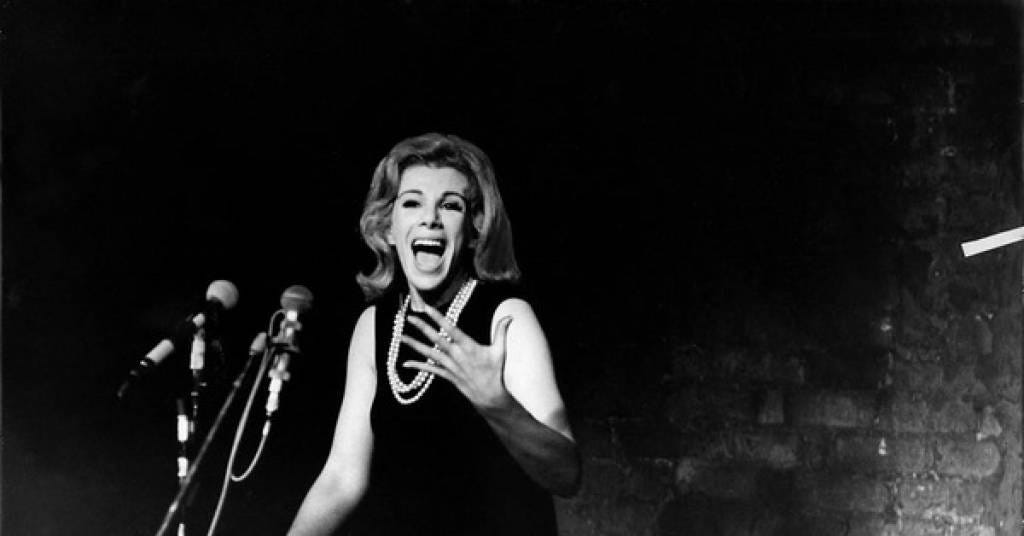
It is a truth universally acknowledged that a single man in possession of a sense of humor must be in want of a women less funny than himself. Though, is a masculinity crisis really the only reason that there are less successful female stand-up comedians than male? Historical misogyny and the dichotomous view of women being either the domestic, docile angel Mary or the temptress Eve are factors in the struggle of female comedians. But we must also take into account the presence of arguably one of the most popular forms of comedy today and the limited accessibility of this form for women: self-deprecation humor. Notice that almost all female comedians until recently could more often be described as satirists, attacking society and others, but they weren't traditionally endearing, self-deprecating jokesters — at least not in the same way as men. It's admittedly easier to laugh at someone who makes fun of themselves than one who points out troubling hypocrisy in ourselves. Even though many male comedians portray an identity or social standing others are able to mock (racial or religious minority, androgynous, low physical attractiveness, etc.), it is still more socially acceptable and funny for males to make fun of their own inferiority complexes. Women, who have only recently had more access to the comedy stage, must use other comedic strategies because self-deprecation humor would be seen as either uncomfortable (she's too sweet and inexperienced to make those jokes) or unseemly (her behavior is more unacceptable and cringy than funny). The history and popularity of self-deprecating comedy and the traditional angelic-or-devil view of women contribute to the fact that most people find male comedians more funny than female comedians, limiting females in the kinds of humor that work for them.
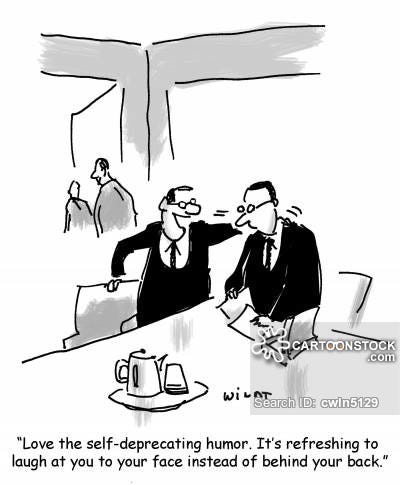
The Superiority Theory of Humor focuses on the human tendency to laugh at the misfortunes and embarrassments of others because it makes one feel happy and relieved to be better than the person speaking. This type of humor serves as anxiety relief and an ego boost — the opportunity to distance oneself from the comedian and his or her embarrassments even though one might relate to them and the ability to put oneself over the comedian by laughing at them. This reaction or emotion is what John Mulaney is playing to when he jokes about people thinking he's gay because of his higher voice and feminine hips. For the comedian, it might serve as a coping mechanism for their struggles and frustration in their (mostly inferior) social position. Jonas Polsky, a professional comedy writer, writes on his blog that "people that have rich, fulfilling lives don't waste a lot of time coming up with jokes. Their life is already great. A comedian's life sucks. Comedy is a hidden sanctuary in your mind, that you can use to turn ugly situations upside down, and make the untenable, tenable. Because I'm constantly unhappy, I've spent most of my life trying to entertain myself, and make other people laugh." This observation that most comedian's lives are unhappy and that unhappiness is what drives comedy is interesting given the history comedy almost always being held by the lower classes: jesters and fools in the courts, blackface characters in American theaters, and more recently the prominence of Jewish and other minority stand-up comedians. Charlie Chaplin, one of the forerunners of slapstick comedy in American film, portrayed a little, beta-male tramp character who was endearingly unaware and always getting into trouble with his social superiors. The possible tendency toward depression for comedians cuts deep when we talk about beloved figures in comedy like Robin Williams and Jim Carrey. According to Australian stand-up comedian Hannah Gadsby, the underlying unhappiness and low self-esteem is exactly what feeds comedy, and it's devastating. In an article about her new Netflix comedy special in which as part of her act she explains why she is quitting comedy, she tells the story of her uncle giving her the "trick" to combatting the judgmental comments others made about her adolescent body. He said, "Make fun of your flaws. If you beat them to it they won't be able to make fun of you because you are already doing it. So, go be a good sport." It makes sense that this type of comedy would be popular with minority groups and people on the outskirts of society who can feel empowered by making the jokes directed at them themselves. But why isn't it the same with women?
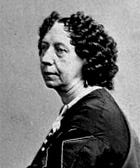
This self-deprecating strain of comedy was embedded into our culture by males, and society sees males as the most likely and believable portrayers of this form due to the historical "angel of the house" versus "temptress Eve" dichotomous view of women. Female satirists such as Fanny Fern (Sarah Willis) and Dorothy Parker were historically viewed with skepticism, as out-of-place creatures without the right experience or perspective to make sound critiques of larger society. (Jane Austen being one of these dangerously observant females whose famous first line of Pride and Prejudice, making fun of the commonly understood but subtle art of spouse hunting in nineteenth-century England, inspired the first line of this article.) Though popular in their day, they always had more to prove than their male counterparts. This critical approach to female comic writers is very evident in Nathaniel Hawthorne's review of Fanny Fern's Ruth Hall. Hawthorne had previously written that "America is now wholly given over to a damned mob of scribbling women, and I should have no chance of success while the public is occupied with their trash." In his review of Ruth Hall, however, he backtracks with what he probably considers high praise:
In my last, I recollect, I bestowed some vituperation on female authors. I have since been reading "Ruth Hall"; and I must say I enjoyed it a good deal. The woman writes as if the Devil was in her; and that is the only condition under which a woman ever writes anything worth reading. Generally women write like emasculated men, and are only distinguished from male authors by a greater feebleness and folly; but when they throw off the restraints of decency, and come before the public stark naked, as it were — then their books are sure to possess character and value. Can you tell me anything about this Fanny Fern? If you meet her, I wish you would let her know how much I admire her. (Letters to Ticknor, 1:78)
Hawthorne's language in his praise of Fanny Fern clearly assumes the two extremes for women to embody in the minds of most men: either possessed of the devil, or full of "feebleness and folly." With these assumptions in the cultural subconscious, women performing self-deprecating humor come across differently to audiences than men do. They're crass instead of honest; they're naive instead of down-to-earth.
Amy Schumer is a good case study for examining public reactions to self-deprecation humor by a female comedian who bases much of her work on her sexuality and not fitting the Hollywood stereotype for a female body. When asked about the role of self-deprecation in her work, Schumer says, "People are so angry and love to burn people at the stake. So I'll just burn myself." Some of her recent work includes a short spoof of 12 Angry Men in which a group of men debate whether or not Schumer is sexy enough to be on TV.
Drawing attention to her femininity using humor may be her strategy in combating body issues in Hollywood, but she has received significant pushback, unlike other traditionally feminine comedians like Amy Poehler and Tina Fey. Why, you may ask, does Amy Schumer receive such deliberately harsh treatment from the public, when everyone loves Jim Gaffigan's self-effacing brand of humor, which he says brings humility and self-awareness to a performance? Female comedians who want to utilize self-deprecation humor have to be very careful about how they come across.
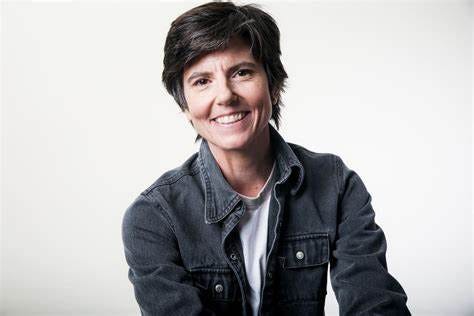
This subordinate role women have held in society for centuries has a part to play in why it is more funny for a man to perform self-deprecating humor than it is for a female. The overwhelming presence of socially downtrodden males in the comedy scene demonstrates the strength of these gender stereotypes — women working their way up the social totem pole with the same types of jokes men are using is seen as more uncomfortable or even threatening and unfeminine. It may be part of the reason why many female comedians tend toward androgyny — like Ellen DeGeneres or Tig Notaro — and even when engaging in self-deprecation humor, gender roles or gender-specific bodies aren't usually the subject of the joke. Audiences can separate them from the idea of what a typical woman is, with all the accompanying standards and expectations.
In response to a question about why women aren't funny, Fran Lebowitz said, "The cultural values are male; for a woman to say a man is funny is the equivalent of a man saying a woman is pretty. Also, humor is largely aggressive and pre-emptive, and what's more male than that?" (Hitchens). Even the female comics and writers of today like Lebowitz, who is sometimes referred to as the modern-day Dorothy Parker (Collins), recognizes the associations of humor, pre-emptive self-mockery, and maleness. Women who attempt it could be seen as breaking the conventions of her gender, and apparently that isn't funny.
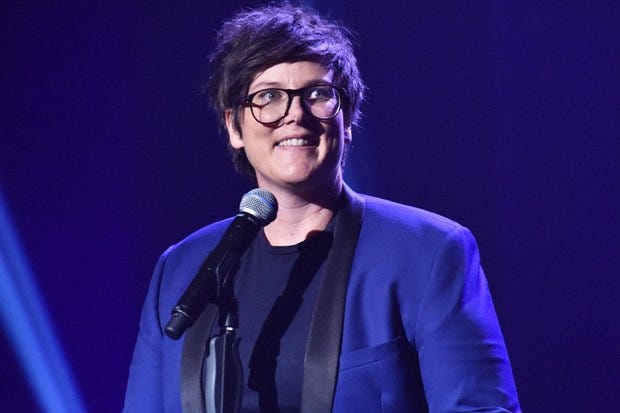
Due to a combination of misogynistic treatment of gender, different responses in males and females to social marginalizing, and the evolution of comedy to the popular use of self-deprecation, women are generally viewed as less funny than males (or at least struggle more to be funny) in Western culture. Is this the same across cultures? If so, we may be able to tribute this phenomena to a more universal gender difference than a culturally specific gender dynamic in the English-speaking world. Both comedy and gender dynamics have developed differently in our culture than in others, yet we see patterns of subordinating women in other cultures as well, so we maybe males all over the world are more funny. Fortunately, women are making strides and breaking convention in the comedy industry more and more. They may still need to find ways other than self-deprecating humor though — as Hannah Gadsby said in her Netflix special, "Because you do understand what self-deprecation means from somebody who already exists in the margins? It's not humility. It's humiliation." Let's hope that the female stand-up comedians of today and the future (people like Iliza Shlesinger come to mind) can recast the comedy scene to include all perspectives and types of humor, somehow, in a truly funny way.
Source: https://medium.com/@abigailmorse96/why-women-arent-as-funny-35c69aef345b
0 Response to "Why Arent Women Standup Vomedians Funny"
Post a Comment